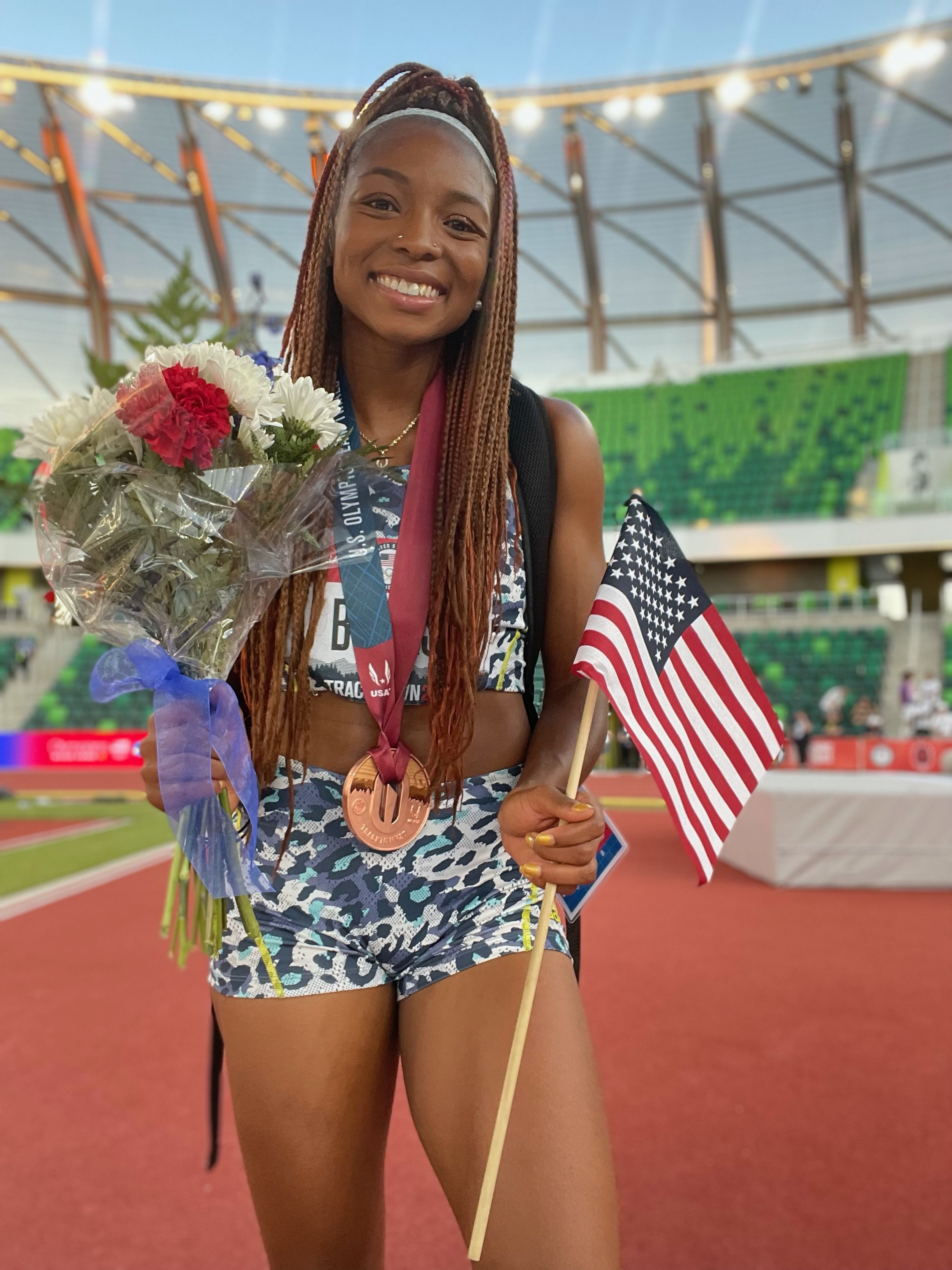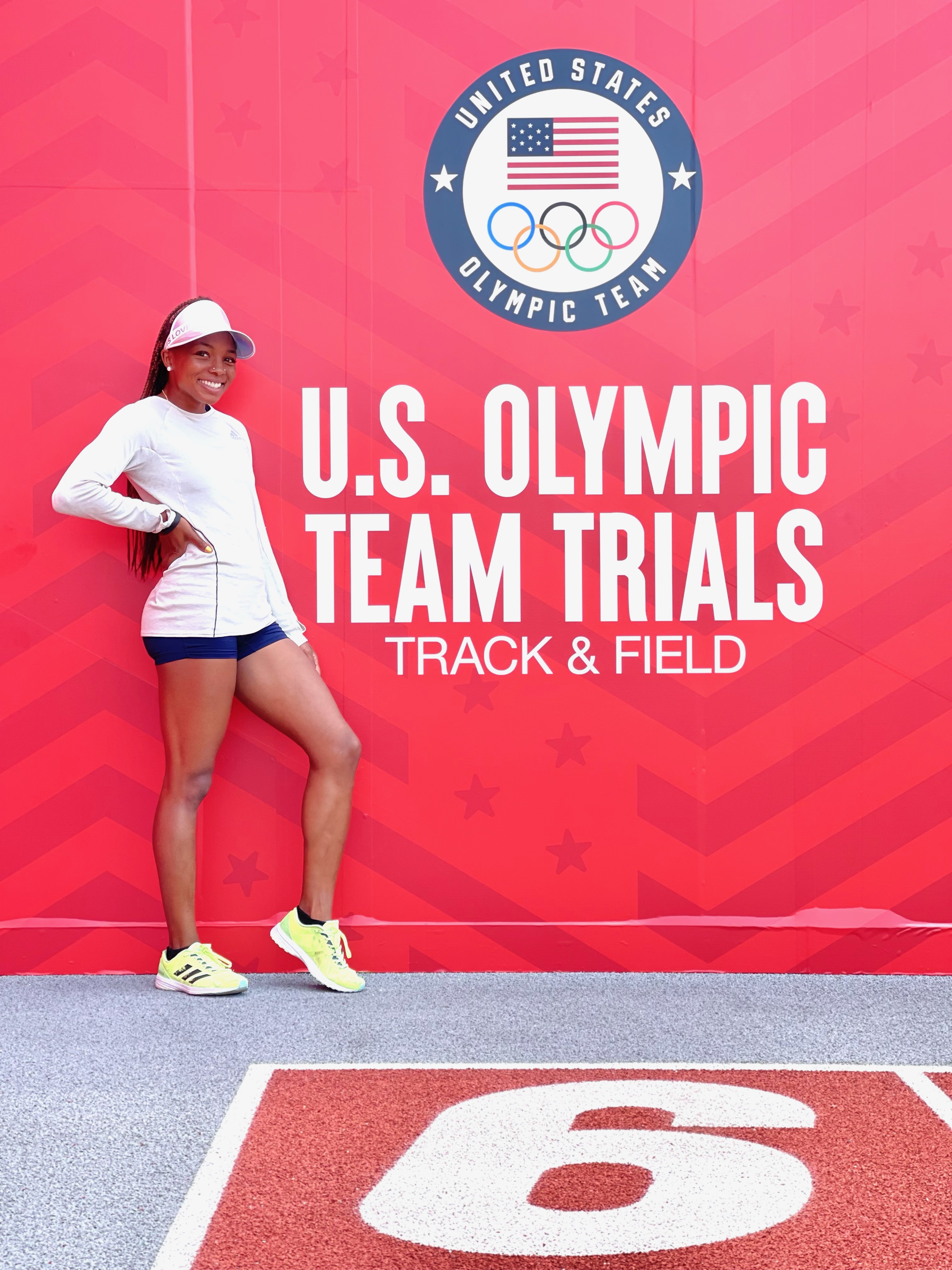From McDonald’s to the Olympics: An Athlete’s Extraordinary Path to Tokyo
July 30, 2021American Olympic long jumper Quanesha Burks had a go-to order at McDonald’s when she worked there ten years ago: the “Q” special.
The 26-year-old Alabama native would order a quarter pounder burger with bacon—extra bacon—with only mayo and pickles. She’d also get a medium-sized order of fries, no salt, to dip in her caramel sundae with oreos.
This was also the rookie Olympian’s first meal after she learned in June she made it onto Team USA. The accomplishment called for a celebration, which Burks commemorated with her sweet and salty combo, she told VICE World News in a recent interview.
“I’m so excited. I want to enjoy every single moment in Tokyo knowing I’m an Olympian,” she said.
Tokyo 2020 is Burks’ first Olympics, but she’s no stranger to challenges. From preparing food beneath the Golden Arches to competing under the Olympic rings, she juggled school, track, a job, and family duties.

When she was 16 years old, Burks started working at McDonald’s to support her family. Her mother had just remarried and welcomed two daughters into the world, for whom Burks felt responsible. “I had a purpose and I had to understand that my little sisters were looking up to me. I had to do what had to be done,” she said.
Although she knew McDonald’s wouldn’t be her career, the work taught her to seize every opportunity to grow.
“It doesn’t matter what job you have, where you start, you can learn,” she said. “Every job instills a skill that you ultimately need for your dream.”
Burks said she knew she had a lot on her plate from a young age, but she felt no hesitation to work. She paid family bills, drove her grandmother to her job, and took her sisters to school—anything to help “alleviate any stress that was going on,” she said.
Meanwhile, she found time to jumpstart a budding track career. In middle school, she began running to improve her performance in basketball, a sport she played for fun. But after competing in a couple of state championships, her coaches found she was pretty speedy.
At first, Burks shrugged off the idea. “Who just wants to run?” she said. But once she started, she fell in love with track. Long jump, introduced to her by her coach, was also a happy coincidence.
“I didn’t want to jump in the sand—that’s just dirty,” she said. But at a track meet in her freshman year of high school, she jumped 13 feet, just three inches shy of the D3 recruiting average. Recruiters started to take an interest in her junior year, when she was jumping 20 feet, already above the average for D1 college athletes. What was once a sport she knew nothing about was now her ticket to the Olympics.

But Burks’ career hasn’t always been instances of happy accidents.
In 2019, just a week before the USA Outdoor Track and Field Championships, she lost her grandfather. She saw him as her only father figure in her life, and the emotional strain of burying him on a Thursday, then flying out Friday to compete Saturday, was unbearable, she said.
But her family pushed her to compete in honor of her grandfather. This created a “new Q,” a version of herself that’s more determined than she ever was, she said, as she prepared for her first Olympic competition on Sunday.
Half of her performance, she said, is dependent on mental strength. She knows she has the physical capability to win, as she’s seen herself achieve personal bests. In 2018, she finished second to U.S. long jump record holder Brittney Reese at the USA Indoor Track and Field Championships. Her best personal jump put her just four inches shy of the current Olympic record, at 24 feet and three inches.
Back in Hartselle, Alabama, a cool glass of sweet tea and cheers of “roll tide,” which she described as her state’s “hello,” await her and the gold medal she hopes to take home.
Until then, she’s excited to greet people in Japan with “Quanichiwa,” a combination of her first name and “Konnichiwa,” the Japanese word for “hello.”
Ever since she was a kid, people have pointed out that the two words have similar pronunciations. “Now the Olympics are in Tokyo! I get to use ‘Quanichiwa.’ I’m so excited to say it,” she said.
